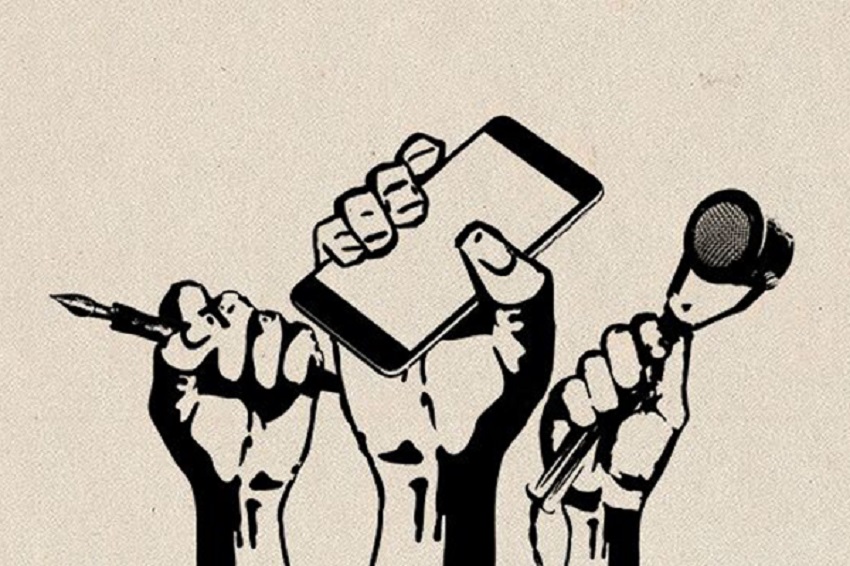India’s Vaccine Diplomacy – Goodwill or Preparation For 2021
As we progressed into 2021, our scientists gifted us with two indigenous COVID-19 vaccines, “Covishield” by Serum Institute of India and “Covaxin” by Bharat BioTech. With massive hopes and expectations, the world’s largest vaccination program commenced on the 16th of January and with gigantic production capacity and diplomatic excellence, India successfully managed to attract dozens of foreign countries looking eagerly for Indian vaccines.
To get the best out of the opportunity, the Indian government, as a part of its “neighborhood first” policy, started to ‘gift’ Indian vaccines to some neighbors like – Nepal, Bangladesh, Myanmar, etc. on a priority basis. Some may consider this step just a gesture of goodwill or a way to ensure peace in the subcontinent, but the decision might have some strategic impacts to help the nation face tough challenges in the future. Keeping in mind, the increased tension between India and China and the ‘threat of a two-front war’. After all, the biggest challenge for India in the subcontinent is the increasing Chinese dominance, and vaccine diplomacy could be a small, but effective reply to that.
The COVID-19 vaccines can be a ‘multi-utility diplomatic tool’ for India, as after the events of June 2020, Sino-Indian relations are facing their nadir. Even in the new year, the army and air force chief warned Indian forces about a possible military tension between the uneasy neighbors. Because of the increasing Chinese investments in Bordering nations (Nepal, Sri Lanka, Myanmar, and definitely, Pakistan), India might find herself in a pernicious situation having intrusions from multiple fronts, be it through army bases in Nepal and Pakistan or from naval bases in Myanmar or Sri Lanka.
Ameliorating relations with the traditional allies was a much-needed step after the pandemic and vaccine diplomacy is a good way to proceed. It will not only pacify some past disputes with countries like Nepal (Border dispute), Myanmar (Rohingya), and Bangladesh (NRC – CAA dispute) but will also help India to expand its reach in the subcontinent to retaliate to Chinese initiatives like CPEC, Hambantota and Gwadar Port initiative, and many more.
Also, allaying relations with neighbors will help India in the completion or advancement of old projects facing International politics like the Kaladan Multi-Model Project (involving Bangladesh and Myanmar) in the Bay of Bengal, expansion of military bases in Seychelles, and the Maldives to tackle Chinese Naval bases in Djibouti, and many more.
In the post-COVID world, the vaccine diplomacy will be a good start to a new diplomatic policy and the government got the first-mover as well as the supply chain advantage. As such, countries previously dependent on China are now looking towards India for their major needs, as India plans to export (gift) nearly 20M vaccines in phase I, outnumbering China with its vaccine manufacturing capabilities.
Everyone would agree, the event is nothing when compared with investments made by China in such nations under the CPEC initiative, but the increasing demand and interest of these nations in India is a very good sign for Indian diplomacy.
Hence, the act of ‘gifting’ vaccines to neighboring countries can turn out to be a possible “masterstroke” as it would benefit India in multiple domains. Keeping in mind, the escalating disputes on the LAC and LOC, the act becomes even more significant, as there are chances, the palliated relations may help the govt. to avoid “war-time” shocks (just like 1962 and 1999), and simultaneously would pose a challenge to Chinese dominance in the subcontinent. Chinese aspirations for a significant presence in the Indian Ocean is its first step for a “Sino-centric world”, but for India, it’s a warning signal to act promptly and solidify her position by aligning with the neighbors, particularly ‘traditional allies’ who are now allured by the Chinese policies.
But we should also remember, benefits and risks go hand in hand. That means India should also be well- prepared for any adverse impact of the vaccine program. Considering the complexity of the usage of vaccines in different environments and body traits, poor management of the program may tarnish the well-established image of Indian medical products. As rivals like China have already started their negative propaganda against our vaccine diplomacy and quality superiority.
Hence, to ensure maximum returns from the initiative, Indian diplomats are required to be ready to handle any unexpected situation, be it the ‘word-guns’ of China or any conspiracy to mar our image, because the program carries a lot of international significance and any setback might put our relations with some all-time allies like – The Maldives, Seychelles at stake and diminish the chances of an India return in the policies of countries like – Nepal, Bangladesh as well.
These points are enough to showcase the significance of vaccine diplomacy, how strengthening ties with the current as well as former allies would help India economically, strategically and would even strengthen the Indian Armed forces to ensure the title of military power in the Arabian Sea and in the Indian ocean would remain with India. And, in case of an escalated military dispute with China and/or Pakistan, India will not face a betrayal or change in stand by any bordering nation and Indian sovereignty will remain inviolable.




Comments